
PHILIP SEARGEANT: Hello, my name’s Philip Seargeant, from The Open University. With me is Jonny Geller who’s Chief Executive of the literary agents Curtis Brown. We’ll be discussing the relationship between creativity and commerce and how to identify it and promote writing talent in today’s rapidly changing world. Could you explain a little bit about your role and the various elements involved in the creation of a work of fiction?
JONNY GELLER: Well, a literary agent primarily is there to discover new talent and exploit the rights derived from the copyright in that work. So we go out and find, we sift through the thousands that are sent to us and of course we also manage the careers of writers throughout their life, but really, it’s half business and it’s half creative, editorial, psychological.
PHILIP SEARGEANT: Could you say something about the criteria you look for in identifying new talents and possibly to what extent the market these days is a factor in that?
JONNY GELLER: Well, the market is always a factor in the choice a literary agent makes when embarking on a new relationship with an author, I mean you can’t ignore that. I think all of us came into publishing because we love books – it’s like any other product – so I think there’s an emotional and a sentimental link between the people in the industry and the, for want of a better word, the product, but the only thing I have is my time, and if I’m going to invest months working on a script, asking them to rewrite it and rewrite it and then in the back of my mind know that there’s no market for it, that would be… you know, I wouldn’t have a business. So I’m continually making judgements and what tends to happen is you look at the… own list of authors that you represent and you think, well, you’ve got your premier league who hopefully will make the money to fund the conference league who will come one day up to the premier league. So I think really what I’m interested in doing is being stimulated, is finding writers who I think are of value, not just commercially but of value culturally, and might be read in 50 years’ time, that’s the ultimate goal.
PHILIP SEARGEANT: And do you have a sense of what counts as cultural value, I mean is that a gut feeling or is it something you can put in words?
JONNY GELLER: Cultural value is… yes, it’s a good question, what does that mean? Obviously partly it’s reflected back to you by the media – you know, if books win awards you realise that that has made some cultural impact, if books change lives. We looked after the… Malala’s book recently, that’s clearly a book that was riven out of massive personal experience and has inspired many, many people. I looked after Nelson Mandela’s last book – you know, that’s not a normal kind of book. And then there’s – what’s the number one bestseller this week? – a vlogger called Zoella who sold 80,000 copies in three days I think. So what’s cultural value. We can’t ignore that this 24-year-old girl writing a novel set for teens has had huge cultural impact, whereas you know the Booker Prize winner is not in the top 20 at the moment. So it’s not up to me to say what is cultural value.
PHILIP SEARGEANT: So is it something… there is a mixture between some personal tastes and more general issues within society?
JONNY GELLER: It… it starts with personal taste, because that’s all you’ve got, it’s intensely subjective. I can read a novel and a colleague will dismiss it within seconds, and so it’s down to my personal drive, but that has got to be informed by what I’m reading, what I’m curious about, what I’m aware of what’s going on in the culture and so I need to be curious, otherwise I’m no use to anybody. But yes, it’s personal versus what I think will be – I hate to use the word – zeitgeist, you know, because essentially I am looking for a manuscript that will be published, probably, in 12 to 18 months’ time. So, I have to be very careful about what genre I’m investing in because that may have run dry. My job is where culture meets commerce and I’ve got to be on both sides. Publishing is not a publicly funded industry so it has no value to society other than its commercial success, so I don’t believe publishers who… who… who believe they’re doing things for the public good when they’re raking fortunes in profits. So there is no doubt that the market does have a huge amount of influence on the choices that agents make. What happens is the agent takes a gamble with their time on something they think is going to either buck the trend or… or begin a new one and also feed the old trends. What happens is publishers find something that works and then they mine that seam endlessly until its exhausted and then they move on to another one and that’s how publishing has always worked and that’s how it works now. Agents have to be a little bit more agile and think, well, I’ve got two vampire teen novels, I can’t do any more; I’ve got my psychological thriller, I have my literary novel that was, you know, in India after the Raj, there must be something that’s going to make things different. But we’ve got to be realistic. There are fewer booksellers and therefore there are fewer distribution channels to get serious non-fiction and serious… so-called serious literary fiction out there, so even if I had the best book in the world, if a publisher doesn’t know how to get the book out, there’s a limit to how much they can pay me. Publishing is about collaboration, I mean not quite the same as with television and film which is obviously hundreds of people collaborating on one vision. Once the author’s delivered the book that we all agree is the right one and the editing has been done, you know there’s probably about, I would think, in the region of 200 people working on that one product, on a book, on a big book launch, you know from marketing and sales, from booksellers, librarians and that’s excluding the editor, the publisher, the sales people and the agents and the agency, you know we sell… I’ve got 12 people working on selling foreign rights to these books and we market them at Frankfurt and London; you know it’s a whole industry around the sale of a big book. But collaboration is key because the best experience for an agent is when you sell a novel, at auction, so several publishers have bid for it, you sell it to the right publisher who has a vision for this book that they had when they first read it and they first bought it and that vision is unbroken through all the meetings, all the covers that you see, all the blurbs, right up until day of publication. And then the reviewers receive it in the way we wanted it to and the booksellers back it and the publishers invest in the marketing of it, and then it takes flight. That happens very rarely, but when it does that’s exactly what publishing should be and that is the example of collaboration.
PHILIP SEARGEANT: And to what extent – this is the big question I guess of the moment – to what extent is that process changing with the influence of new technologies?
JONNY GELLER: Well, I think publishing needed disruption and I think Amazon is an extraordinary business. I quite like the fact that lots of publishers’ feathers were ruffled and they had to improve their game, because they tend to be rather passive. And I think they are slowly becoming a little bit more proactive, which is great. The issue is really about whether self-publishing has a life, and that’s really the only threat to publishers, and the evidence in 2014/15 is not a huge threat, which is probably what we could have predicted, but in about 2012 there was a lot of people worried. The disruption and the change has had a huge impact on agencies because you can no longer rely on your business to be a series of relationships with a select group of people – editors who trust your taste will pay X amount of money, then you get your percentage and you go home. It’s a model I didn’t particularly like, to be honest, and I even don’t like the term ‘agent’. I… I believe we are now managers, and the model of Curtis Brown, which is the largest independent agency in the country, is that we should be in every area of the creative person’s life, whether it’s presenting television, film, production, speaking, writing, and so we have to then have an agency that does that. I mean for us, I think the future of agenting is probably consolidation. There are 300 or so agencies in London, which is ludicrous really because that’s far too many for the amount of authors who need them, and these small one-person bands or two-person bands they probably don’t have the right contacts or leverage so they can’t be representing them properly, and so I would imagine that these will, in some form or other, come together. There are fewer publishers, there are only five now and there may well be four, you know, and with Amazon as well offering something, it makes a lot of sense for the industry to sort itself out. The flip side of this, of course, will be it’s even harder, it may seem, to get into it if there are fewer… you know, at least if there’s 300 agencies you can send your novel to 300 different offices, and we’ll have to be careful about that because we don’t want it to be a homogenised, you know, one thing fits all and that all books should fit this formula, we’re very wary about that. I think literature and books and publishing do have an absolutely key role, culturally, that’s why I’m doing it, and I’m in it. I love film and television and I’m not saying they don’t, but with books I always go back to my own feeling that the way to empathise is often through storytelling and that’s certainly the way I learned about the world – through books – and I think it has huge value, and where I… where I probably don’t get into is what is a good or a bad book. I know some books are just marketing, but we’re talking about books that have spent a lot of time over and that they are good in their own right, I think have great social value. Literacy is a huge problem in this country and therefore we need more stories. I think the way we tell our British story – who we are as a people – comes through our crime novels and our literature, and I think it’s been a huge democratisation of publishing in the last ten years, which has meant that the snobbery has gone a bit – what we should read and what we would like to read and I just think reading anything is good.
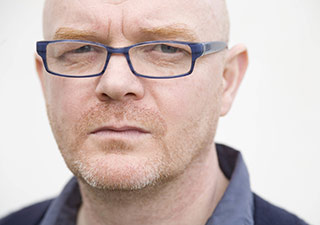
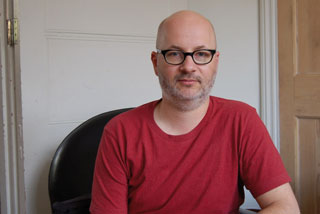
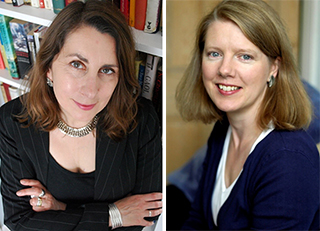
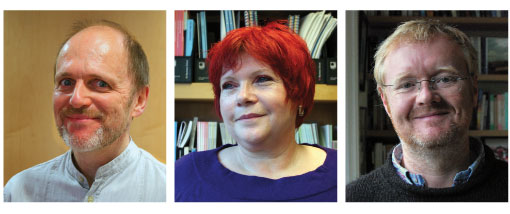
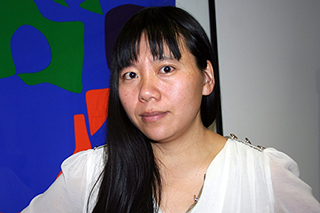
Rate and Review
Rate this audio
Review this audio
Log into OpenLearn to leave reviews and join in the conversation.
Audio reviews